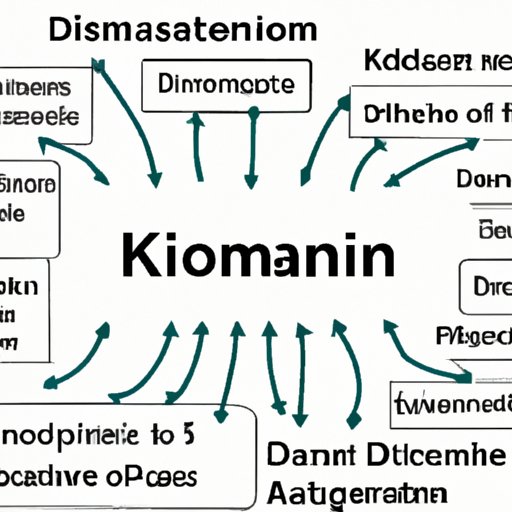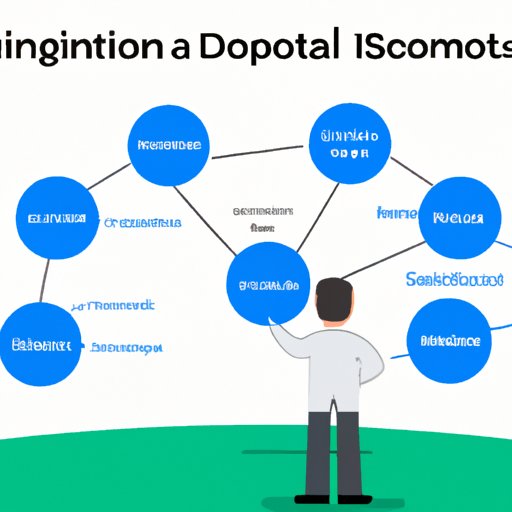
An Overview of Domain Knowledge in Data Science
Data science has become a powerful tool for businesses, allowing them to gain insights from data and make better decisions. To be successful in this field, however, requires more than just technical proficiency; it also requires an understanding of the domain or industry in which the data is being used. In other words, data scientists must possess domain knowledge in order to effectively analyze and interpret data.
Definition
Domain knowledge is the understanding of a particular subject or field. It includes both general knowledge of the area, such as its history and current trends, and specific knowledge of the data being analyzed. For example, a data scientist working with healthcare data would need to understand the various regulations and standards that govern the industry. Similarly, a data scientist working with financial data would need to understand the principles and dynamics of the stock market.
Benefits
Having domain knowledge is essential for data scientists because it allows them to ask the right questions and identify relevant data, as well as develop effective solutions. Without domain knowledge, data scientists may miss important insights or draw incorrect conclusions. Additionally, domain knowledge can help data scientists design experiments and build models that are more accurate and reliable.

Exploring the Importance of Domain Knowledge for Data Scientists
Understanding the Problem
The first step in any data science project is to understand the problem that needs to be solved. Data scientists must have a thorough understanding of the context and background of the problem before they can begin to analyze the data. Domain knowledge is key to this process, as it helps data scientists to ask and answer the right questions. This allows them to break down complex problems into smaller, more manageable pieces and identify the data points that are most relevant to the analysis.
Identifying Relevant Data
Once the problem has been identified, the next step is to gather and analyze the relevant data. Domain knowledge is essential for this process, as it helps data scientists to identify and select the data points that will be most useful for the analysis. Without domain knowledge, data scientists may overlook important data points or end up with too much irrelevant information.
Developing Solutions
Finally, domain knowledge is essential for developing effective solutions. Data scientists must be able to interpret the results of their analysis and use their domain knowledge to identify potential solutions. This requires an understanding of the industry and the data being analyzed, as well as an ability to think critically and creatively.
How to Acquire Domain Knowledge for Data Science Projects
Given the importance of domain knowledge, data scientists must take steps to acquire and maintain it. Here are some strategies for doing so:
Research and Interviews
One way to acquire domain knowledge is through research and interviews. Data scientists should read relevant literature and industry reports, as well as speak to experts in the field to gain a better understanding of the data and the problem at hand. Doing so will provide valuable insight into the nuances of the industry and help data scientists identify potential solutions.
Reading and Learning
Another way to acquire domain knowledge is through reading and learning. Data scientists should stay up-to-date on the latest developments in their field by reading books, articles, and blogs. They should also attend conferences and seminars to learn from experts in the field.
Working with Subject Matter Experts
Finally, data scientists should consider working with subject matter experts (SMEs). SMEs are individuals who have extensive knowledge of a particular domain and can provide valuable advice and guidance. Working with SMEs can be beneficial for data scientists, as it gives them access to expertise and experience that they may not have otherwise.

Case Studies: Examining Domain Knowledge in Practice
To better understand the role of domain knowledge in data science, let’s look at a few case studies:
Example 1
In this example, a data scientist was tasked with identifying potential customers for a new product. The data scientist had to analyze customer data to determine which customers were likely to purchase the product. To do this, the data scientist needed to understand the customer’s needs, preferences, and buying habits. With the help of domain knowledge, the data scientist was able to identify the most promising customers and develop a targeted marketing campaign.
Example 2
In this example, a data scientist was tasked with predicting sales for a new product. The data scientist had to analyze past sales data to determine how the product was likely to perform. To do this, the data scientist needed to understand the market conditions and trends that might impact the product’s success. With the help of domain knowledge, the data scientist was able to accurately predict sales and develop a successful launch strategy.
Example 3
In this example, a data scientist was tasked with optimizing an online retail store. The data scientist had to analyze customer data to identify areas of improvement. To do this, the data scientist needed to understand the customer’s needs, preferences, and buying habits. With the help of domain knowledge, the data scientist was able to identify areas for improvement and develop strategies for optimizing the store.
Strategies for Developing Domain Knowledge in Data Science
Given the importance of domain knowledge, data scientists should take steps to continuously develop and refine their understanding of their field. Here are some strategies for doing so:
Continuous Learning
Data scientists should strive to stay up-to-date on the latest developments and trends in their field by reading books, articles, and blogs. They should also attend conferences and seminars to learn from experts in the field.
Leveraging Technology
Data scientists should leverage technology to facilitate their learning. There are many online courses and tutorials available that can help data scientists develop their understanding of the field. Additionally, data scientists should consider using tools and software to automate certain tasks and make their work more efficient.
Networking
Finally, data scientists should consider networking with other professionals in the field. Networking can help data scientists stay up-to-date on the latest developments and trends, as well as give them access to valuable resources and advice.
The Role of Domain Knowledge in Data-Driven Decision Making
Domain knowledge is also essential for making data-driven decisions. Data scientists must be able to interpret the results of their analysis and use their domain knowledge to identify potential solutions.
Analyzing Data
The first step in data-driven decision making is to analyze the data. Data scientists must use their domain knowledge to identify the data points that are most relevant to the analysis and draw meaningful insights from the data.
Interpreting Results
Once the data has been analyzed, data scientists must interpret the results. Domain knowledge is essential for this process, as it helps data scientists to identify potential solutions and recognize patterns in the data.
Making Informed Decisions
Finally, data scientists must use their domain knowledge to make informed decisions. Having a deep understanding of the domain will allow data scientists to identify potential risks and opportunities and make decisions that are based on sound analysis.
Conclusion
Domain knowledge is an essential component of data science. It enables data scientists to ask the right questions, identify relevant data, and develop effective solutions. Furthermore, domain knowledge is essential for data-driven decision making, as it helps data scientists to interpret the results of their analysis and make informed decisions. Data scientists should take steps to acquire and maintain domain knowledge by researching and interviewing experts, reading and learning, and working with subject matter experts. By doing so, they can ensure that their data science projects are successful.
(Note: Is this article not meeting your expectations? Do you have knowledge or insights to share? Unlock new opportunities and expand your reach by joining our authors team. Click Registration to join us and share your expertise with our readers.)
